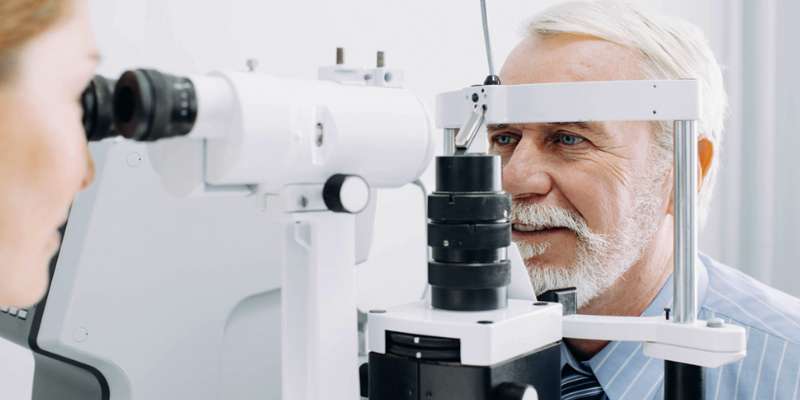The risk of developing diabetic retinopathy increases if a person with diabetes has an eating disorder, a study has shown.
High concentrations of glucose in the blood can lead to tissue damage in different parts of the body, including eyes. Retinopathy is where microvascular changes in the retina leads to vision problems and even blindness, with the condition affecting people with all types of diabetes.
- British male becomes first human to be given 3D-printed prosthetic eye
- Children whose mothers had diabetes during pregnancy more likely to develop eye problems, study finds
Inconsistent food intake caused by eating disorders can lead to poor blood sugar level control.
A team from Anglia Ruskin University looked at data from across a number of studies and found that people with diabetes and an eating disorder were almost three times more likely to go on to develop diabetic retinopathy. The eating disorders taken into account included anorexia and bulimia.
Researchers did not find a link between binge eating disorder and a greater risk of developing retinopathy.
Lead author Mike Trott, Research Assistant for the university’s Vision and Eye Research Institute, said: “We know there are several factors that can regress or accelerate the progression of retinopathy in people living with diabetes. These include physical activity, which is associated with lower risk, and high blood pressure, which can elevate the risk.
- Wearable device design to help manage eye and mouth conditions unveiled
- Patent granted to pioneering eye device that could eliminate finger-pricking
“Our review found a significant positive association between pathological eating disorders and the risk of diabetic retinopathy. The most likely reason for this is poor control of blood sugar levels due to inconsistent food intake or people deliberately not taking insulin as a weight management tactic. Insulin allows the glucose in the blood stream to be converted to energy and subsequently used usefully by the body.
“Practitioners working with people with diabetes should closely monitor eating behaviours so that any abnormal eating behaviour can be addressed swiftly to reduce the risk of diabetic retinopathy and consequent blindness if not treated.”
The study has been published in the Journal of Diabetes & Metabolic Disorders.




